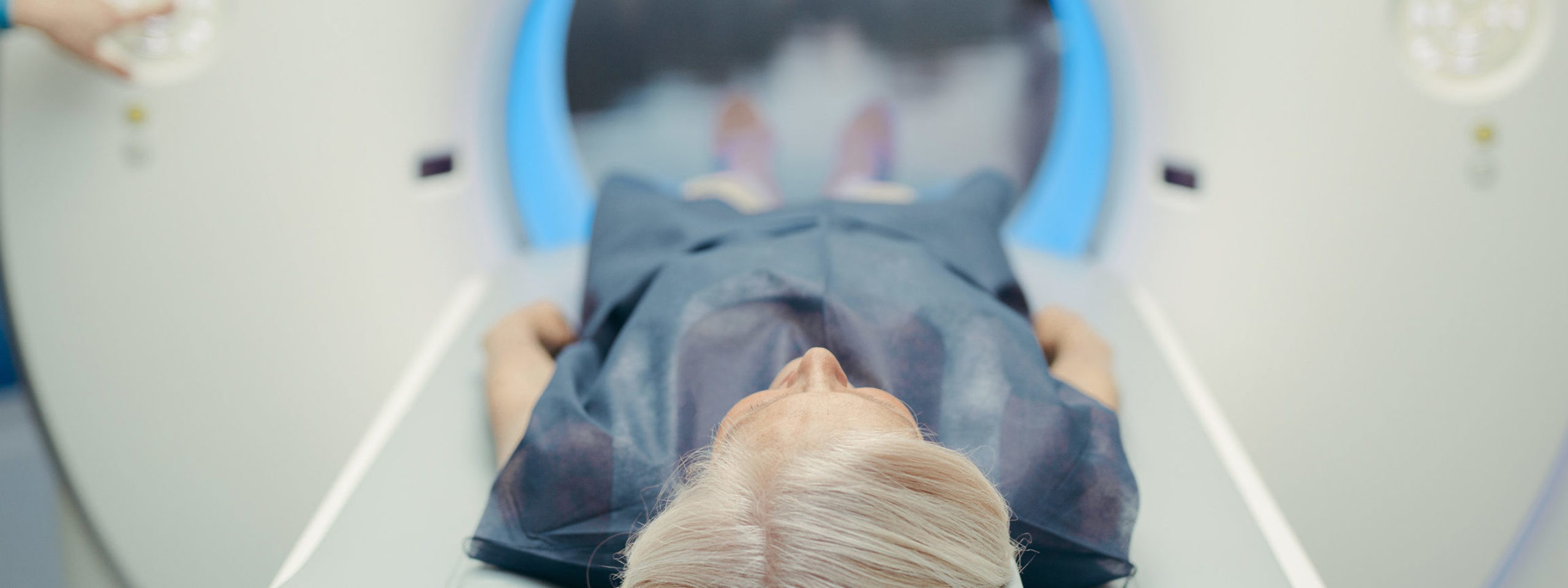A CT (Computed Tomography) scan uses a thin set of rotating x-rays to produce a digital cross-sectional images of bones, blood vessels and soft tissues of the body.
To create images, an x-ray tube rotates around your body while you lie flat on a table that moves into a doughnut-shaped machine. Depending on why you need the scan, contrast dye may be used before or during the CT (Computed Tomography) scan. Staff will discuss this with you at your appointment.
A CT (Computed Tomography) scan can be performed on any part of the body. It can be used to help with the diagnosis of many problems or conditions, further investigate areas of concern, or monitor changes in the body.
Preparation – CT (Computed Tomography) Scan
Mostly, CT scans do not require any preparation. Some CT scans need you to fast from food, but if this is necessary, it will be explained to you at the time of booking.
When you arrive for your CT scan, you may be required to answer some questions about your medical history and any allergies. Staff will get information from your doctor to plan what to scan and whether to use a contrast dye.
Before the CT scan, you may be asked to change into an examination gown for your comfort, and to ensure clothing does not affect the images and diagnostic quality of the scan. You may also be asked to remove jewellery, eye-glasses and any metal objects that might interfere with the images.
Procedure
During the CT scan, you may be asked to hold your breath for short periods.
For your CT scan, it may be recommended that you have an injection of contrast dye to enhance your organs or blood vessels. Using contrast dye is a routine procedure and involves inserting a small cannula into a vein in your arm. The contrast dye is then injected into your arm through the cannula during the scan. You may notice a sensation of warmth and a metallic taste in the mouth. These feelings are different from an allergic reaction. The contrast is rapidly excreted from your body by your kidneys. If a contrast injection is recommended, you will be given an information sheet and asked some medical questions. Information you give us will alert the staff and doctors about any increased risks you may have with the contrast. More information regarding contrast injections can be found on the Intravenous Contrast Injections page.
Duration
The time it takes to do a CT scan depends on what part of the body is scanned and whether a contrast dye is used. However, procedures usually take between 10 – 20 minutes.
Risks / Side Effects
An allergy to contrast dye if used, may cause nausea, sneezing, vomiting, itching, hives and dizziness. More serious reactions are very rare. Mild reactions may occur in up to 1% of patients. Severe reactions are uncommon and occur in less than 1 in 100,000 patients.
CT scans involve exposure to radiation. At Jones Radiology, we heavily invest in up-to-date equipment to minimise radiation exposure to patients and continuously monitor the radiation doses in our practice.
The amount of radiation exposure from a CT scan will vary with the type of scan and the size of the patient. However, the low doses of radiation used in medical imaging mean the risk associated with exposure is so small that it can’t be reliably measured. When a CT scan is medically advised to investigate health problems or potential underlying disease, the medical benefits such as correct diagnosis and treatment, are believed to far outweigh the theoretical risks from radiation.
Pregnant women are advised to minimise exposure to radiation unless it is necessary to do so. It is important to inform staff if you are, or think you might be pregnant.
View the Patient Care page for additional information regarding patient safety.
Are you ready to make your CT (Computed Tomography) Scan appointment?
Our online booking platform allows you to quickly and easily make an appointment online.


